Milbemycin Oxime 16 mg for Cats: Complete Guide to Parasite Control & Heartworm Prevention
Parasites can cause serious health problems for cats, including heartworms, roundworms, hookworms, and tapeworms. These pests can lead to digestive issues, weight loss, and even severe organ damage if left untreated. Milbemycin Oxime 16 mg for Cats is a prescription medication designed to treat and prevent common parasites in cats, offering a safer and more effective solution for parasite control.
What is Milbemycin Oxime 16 mg for Cats?
Milbemycin Oxime 16 mg for Cats is an oral medication used to treat and prevent a wide variety of internal parasites in felines. It is primarily used for heartworm prevention and to treat common intestinal worms such as roundworms, hookworms, and tapeworms. It works by targeting the parasites’ nervous systems, effectively paralyzing and eliminating them from the cat’s body. These drugs are known for their broad-spectrum activity against parasitic worms.
Indications for Milbemycin Oxime 16 mg for Cats
Milbemycin Oxime is indicated for several parasitic infections in cats. These include:
1. Heartworm Disease Prevention
Milbemycin Oxime 16 mg for Cats is commonly prescribed as a preventive treatment for heartworm disease. Heartworm larvae are transmitted by mosquitoes and can infect cats, leading to heart and lung damage. Milbemycin Oxime prevents the larvae from maturing into adult heartworms, thereby preventing infection.
2. Intestinal Worms
Milbemycin Oxime is also used to treat intestinal worms in cats. These may include:
- Roundworms (Toxocara cati)
- Hookworms (Ancylostoma tubaeforme)
- Tapeworms (Dipylidium caninum)
Roundworms and hookworms are common in outdoor cats, while tapeworms are usually transmitted by fleas. These worms can lead to digestive distress, weight loss, and poor overall health.
3. Other Parasite Infections
In addition to heartworms and common intestinal worms, Milbemycin Oxime has also been studied for its efficacy against other nematodes and parasitic infections that can affect cats, though it is not a primary treatment for all types of parasitic infections.
How Does Milbemycin Oxime 16 mg Work?
This disrupts their ability to function properly, leading to paralysis and eventual death. Specifically, the drug interferes with the glutamate-gated chloride channels in the parasite’s nerve and muscle cells, which are essential for normal function. This results in the elimination of the parasite from the host (your cat).
Because it targets the nervous systems of the parasites, Milbemycin Oxime is highly effective at preventing the maturation of heartworm larvae and eliminating intestinal worms.
Benefits of Milbemycin Oxime for Cat Health
There are several significant benefits to using Milbemycin Oxime 16 mg for Cats, including:
1. Effective Heartworm Prevention
Heartworms are a serious threat to your cat’s health, and prevention is always better than treatment. Milbemycin Oxime is highly effective at preventing heartworm larvae from developing into adult worms.
2. Broad-Spectrum Parasite Control
In addition to heartworms, Milbemycin Oxime 16 mg also treats common intestinal parasites like roundworms, hookworms, and tapeworms, offering a comprehensive solution for parasite control.
3. Easy to Administer
The medication is typically available as a chewable tablet or oral tablet, making it easy to administer to your cat. For cats that are difficult to pill, some formulations can be hidden in food, making it easier for pet owners to provide treatment without stress.
4. Safe for Cats of All Ages
Milbemycin Oxime 16 mg is safe for most cats, including kittens over six weeks old and adult cats. It is a great option for regular deworming and heartworm prevention throughout a cat’s life.
5. Minimal Side Effects
Compared to other dewormers and heartworm medications, Milbemycin Oxime has a relatively low risk of side effects. Most cats tolerate the medication well, and serious adverse reactions are rare.
Dosage Recommendations and Administration Instructions
The dosage typically depends on your cat’s weight, and the product is often available in various strengths. Below are the general guidelines:
| Cat Weight | Dosage | Administration Frequency |
| Up to 2.5 kg (5.5 lbs) | 1 tablet (16 mg) | Once per month |
| 2.5 to 5 kg (5.5 to 11 lbs) | 1 tablet (16 mg) | Once per month |
| 5 to 10 kg (11 to 22 lbs) | 2 tablets (16 mg) | Once per month |
How to Administer:
- Chewable Tablets: You can give the chewable tablet directly to your cat, or break it up and mix it with food.
- Oral Tablets: If your cat won’t take the tablet willingly, you can hide it in food or use a pill dispenser.
It’s essential to follow the dosage schedule provided by your veterinarian to ensure maximum efficacy. Monthly administration is recommended for heartworm prevention.
Risks and Precautions When Using Milbemycin Oxime 16 mg for Cats
While Milbemycin Oxime 16 mg for Cats is generally well-tolerated and considered safe for most cats, like any medication, it can have potential side effects. Understanding these effects and taking precautions can help ensure the safe use of this product.
Potential Side Effects
1. Gastrointestinal Upset (Common)
One of the most common side effects associated with Milbemycin Oxime is gastrointestinal upset. Cats may experience symptoms such as:
- Vomiting
- Diarrhea
- Decreased appetite
These symptoms are typically mild and transient, disappearing shortly after the medication is administered.
2. Lethargy (Occasional)
Some cats may show signs of lethargy or reduced activity levels after taking Milbemycin Oxime. This can last for a few hours to a day and generally resolves without intervention.
3. Allergic Reactions (Rare)
Though rare, some cats may experience allergic reactions to Milbemycin Oxime. Symptoms of an allergic reaction may include:
- Swelling (especially around the face, mouth, or eyes)
- Hives or rash
- Difficulty breathing
- Itchy skin
4. Neurological Symptoms (Very Rare)
In rare cases, some cats may experience mild neurological symptoms such as tremors or weakness. These symptoms typically resolve on their own once the medication leaves the system, but if they persist, it is critical to seek veterinary help.
Precautions
To ensure the safe and effective use of Milbemycin Oxime 16 mg for Cats, it’s essential to follow the following precautions:
1. Not for Pregnant or Lactating Cats
Milbemycin Oxime is not recommended for use in pregnant or lactating cats unless specifically prescribed by a veterinarian. The effects of the medication on developing kittens or nursing mothers are not well-studied, and it’s best to avoid unnecessary risk during these stages of a cat’s life.
2. Consult Your Veterinarian for Cats with Pre-existing Health Conditions
Cats with underlying health issues, especially those with liver or kidney disease, should only use Milbemycin Oxime under the guidance of a veterinarian. The drug is metabolized by the liver, and impaired liver function could affect how well the medication works. Always discuss any existing health conditions with your vet before administering Milbemycin Oxime.
3. Use Correct Dosage Based on Weight
Ensure that you are administering the correct dosage based on your cat’s weight. Overdosing can lead to more severe side effects, while underdosing may render the treatment ineffective. It is also important to follow the recommended schedule for monthly administration to ensure continuous protection against heartworms and intestinal parasites.
4. Monitor for Interactions with Other Medications
Milbemycin Oxime is generally safe to use with other medications, but it’s important to check with your veterinarian before combining it with other treatments. Certain medications, such as ivermectin (another anti-parasitic), may interact with Milbemycin Oxime and could increase the risk of side effects.
5. Avoid in Cats with a History of Seizures
Milbemycin Oxime should be used with caution in cats with a history of seizures, as there may be an increased risk of neurological side effects. If your cat has had seizures or other neurological issues in the past, consult your veterinarian before using this medication.
How to Ensure Effective Parasite Control
- Administer the Medication on Schedule: For heartworm prevention, give your cat Milbemycin Oxime every month, year-round.
- Monitor for Side Effects: While serious side effects are rare, it’s important to observe your cat for any changes in behavior after administering the medication.
- Comprehensive Parasite Management: In addition to deworming medications, consider regular flea control and mosquito management to reduce the risk of parasitic infestations.
Scientific Studies on Milbemycin Oxime 16 mg for Cats
Milbemycin Oxime 16 mg for Cats has been studied primarily for its efficacy in heartworm prevention and its ability to treat intestinal parasites. Though there are limited large-scale clinical trials specifically focused on Milbemycin Oxime for cats, research on the active ingredient, Milbemycin, and similar medications has demonstrated its efficacy in parasitic control.
- Heartworm Prevention:
Studies have shown that Milbemycin Oxime effectively prevents the development of heartworm larvae into adult heartworms in cats. Research has supported its monthly administration as an effective method for preventing heartworm disease caused by Dirofilaria immitis. Milbemycin Oxime works by targeting the larvae and preventing them from maturing into adults, thus protecting cats from heartworm-related damage to the heart and lungs. - Intestinal Parasite Treatment:
Milbemycin Oxime is also effective in treating intestinal parasites such as roundworms, hookworms, and tapeworms. Studies confirm its broad-spectrum activity against these common feline parasites. Its ability to paralyze and kill parasites by interfering with their nervous system makes it a reliable treatment for intestinal worm infestations in cats. - Safety Profile:
Clinical studies have generally shown that Milbemycin Oxime is safe for most cats when used according to dosage instructions. Adverse effects, though rare, can include mild gastrointestinal upset or lethargy, which are typically temporary and resolve on their own. - Comparative Research:
Comparative studies have shown that Milbemycin Oxime offers lower risks of severe side effects compared to some traditional dewormers and heartworm preventatives. Its gentle action makes it a good choice for cats with sensitive stomachs or those with ongoing parasite prevention needs. - Veterinary Recommendations:
Veterinarians widely recommend Milbemycin Oxime 16 mg for both prevention and treatment of common feline parasites. While more specific research on its long-term use in cats is still needed, the available studies affirm its effectiveness and safety when used as directed.
Conclusion
Milbemycin Oxime 16 mg for Cats is an essential medication for protecting your cat from heartworms and other internal parasites. Regular use will help keep your cat healthy and free from the harmful effects of parasites, ensuring they lead a happy and active life. With the right care and prevention, you can safeguard your feline companion against the dangers of parasites.







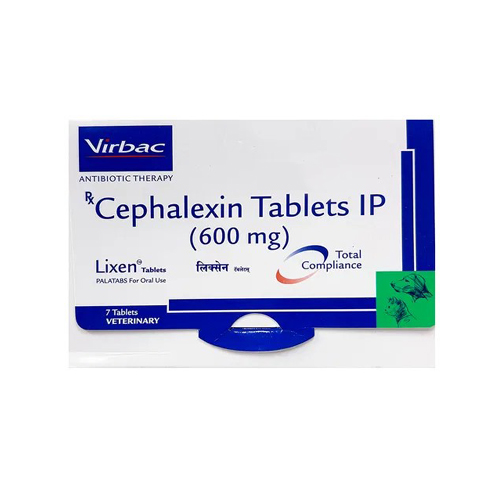
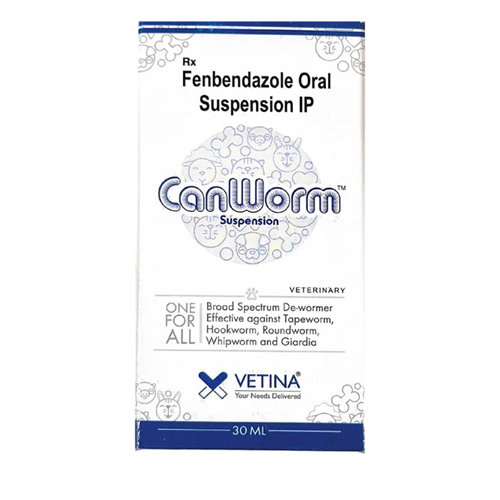



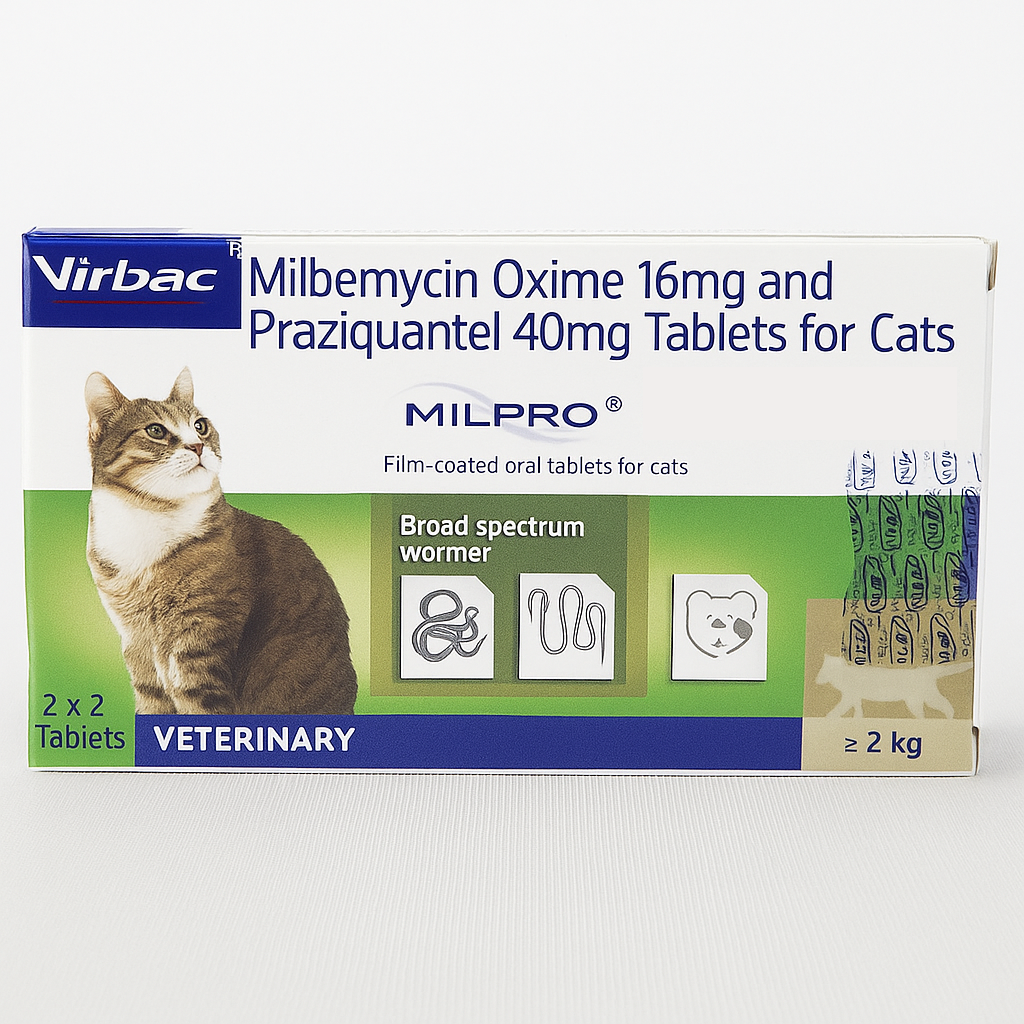
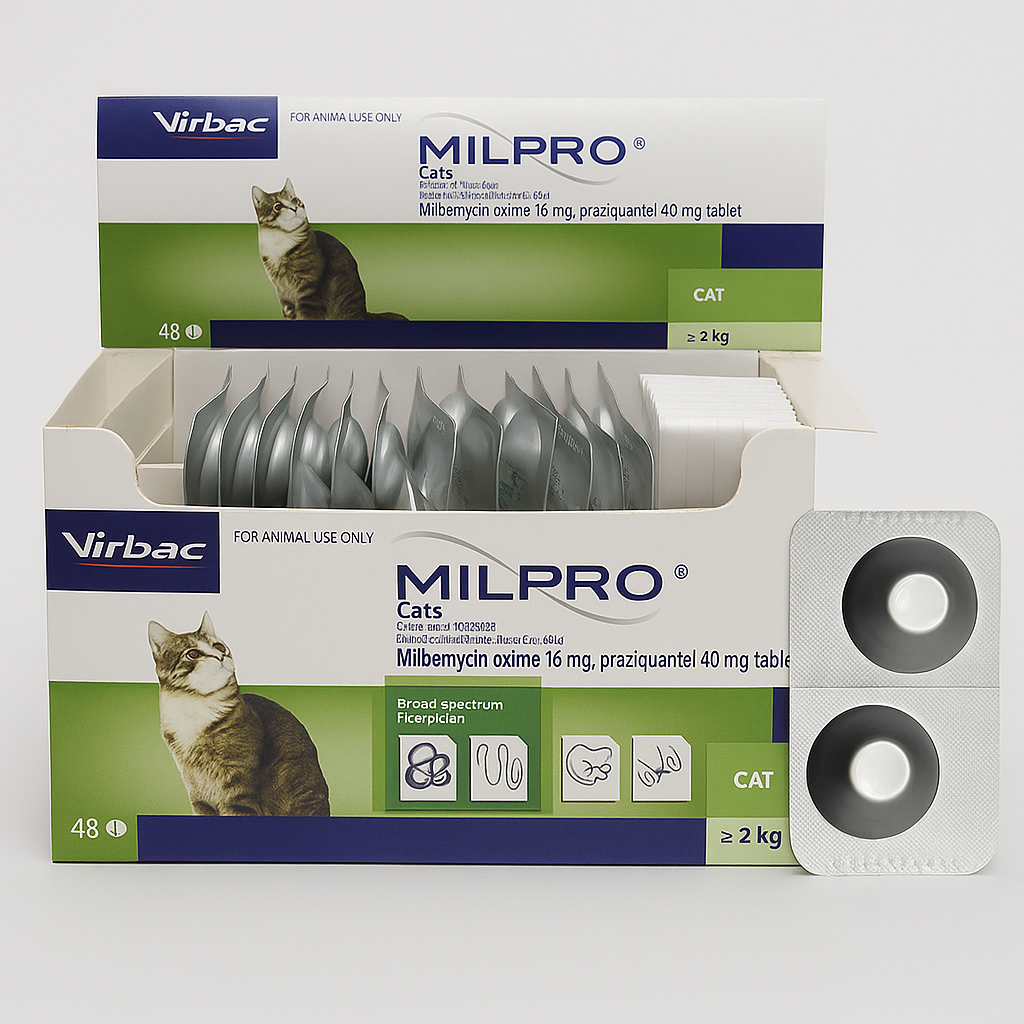
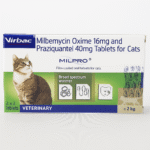
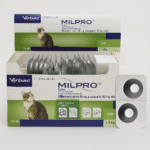

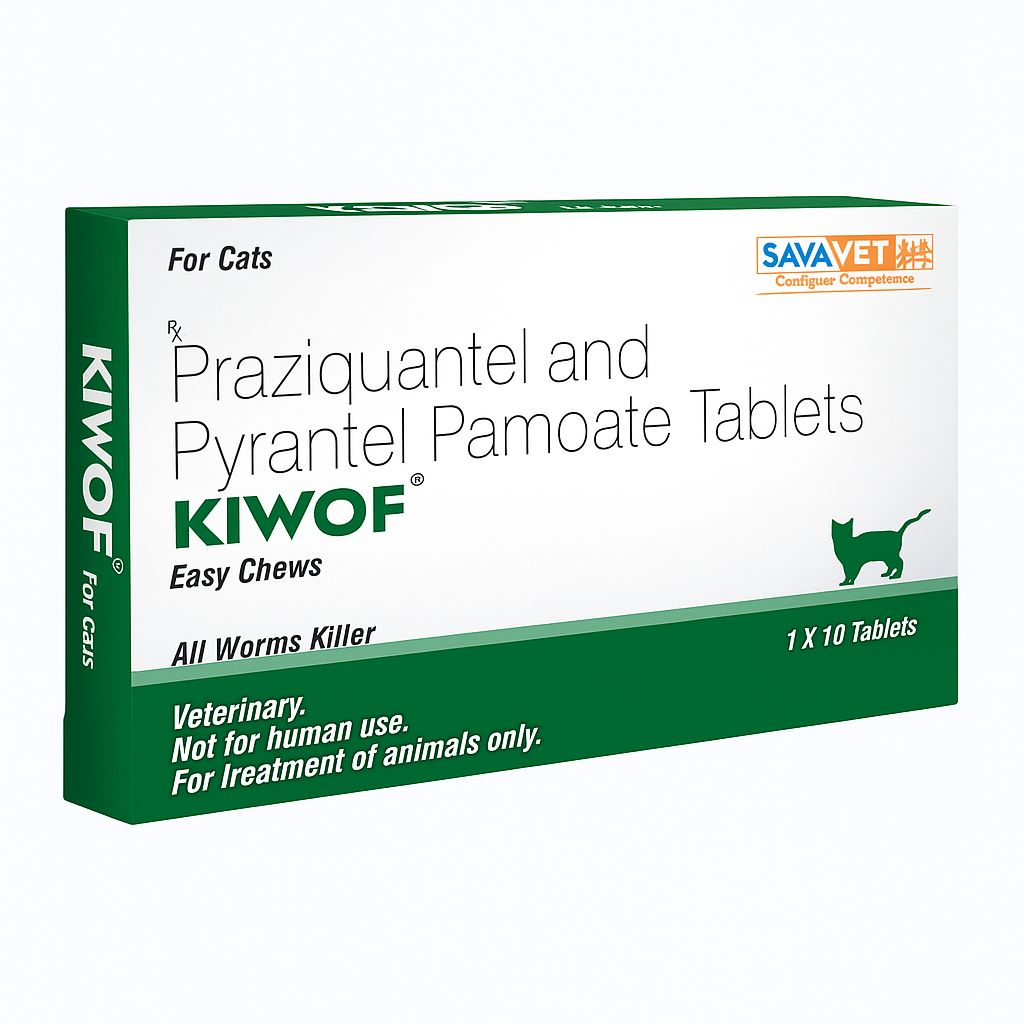
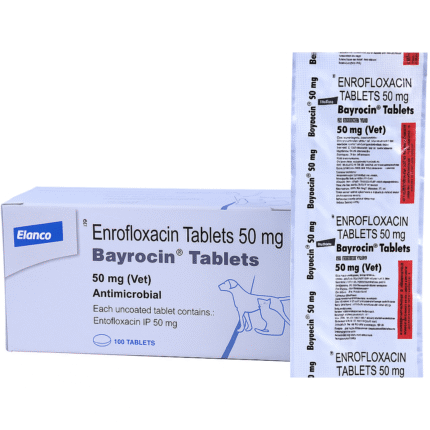
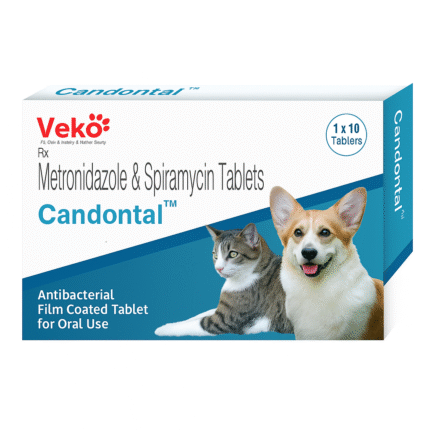
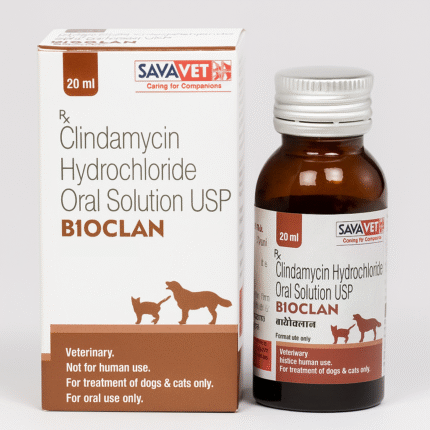
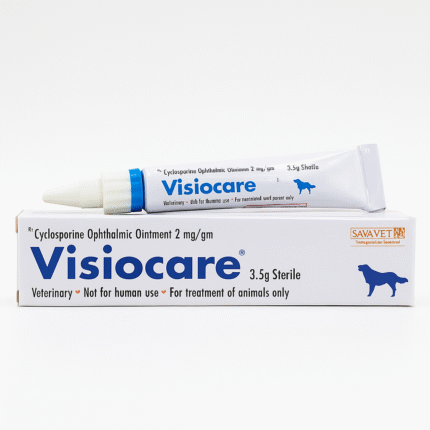
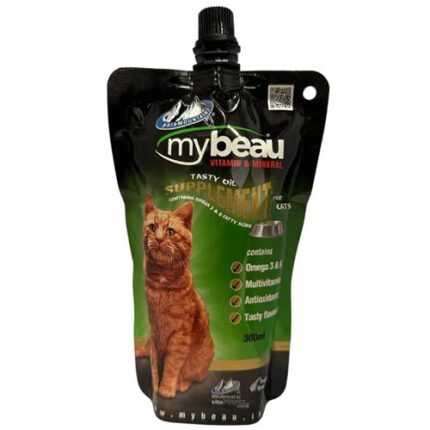
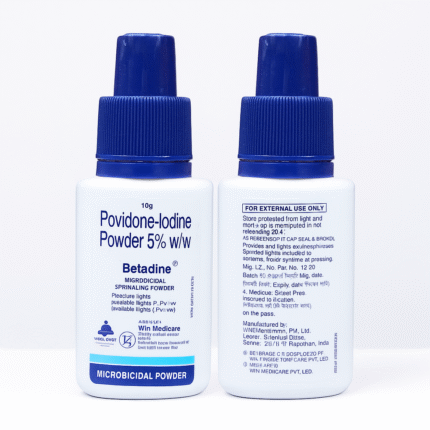

Reviews
There are no reviews yet.